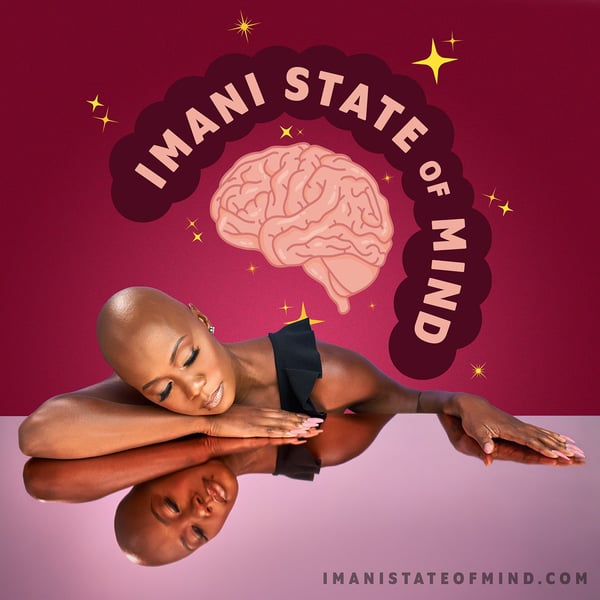What Does It Mean To Have An Eating Disorder?
Imani State of Mind
Imani State of Mind
4.8 • 764 Ratings
🗓️ 27 August 2020
⏱️ 62 minutes
🧾️ Download transcript
Summary
Transcript
Click on a timestamp to play from that location
| 0:00.0 | Just a heads up, today's show is about eating disorders if that's a triggering subject for you. |
| 0:05.5 | If you need help for an eating disorder or you are concerned about a loved one, |
| 0:09.7 | you can call the National Eating Disorder Hotline at 1-800-931-2237. |
| 0:28.4 | When I was 13 years old, my teachers called my entire class to talk about eating disorders. |
| 0:33.0 | The teachers were basically explaining to us what anorexia was. |
| 0:55.8 | And I remember raising my hand and I was like, I've never heard of this. I don't know what this is. Like, you all are really trying to tell me that people just don't eat. And they're like, yes, Imani, this is why we're going through it. But, you know, it wasn't something that was really on my radar very much. I'll have to completely be honest with you. And that's really because I was someone who naturally was always pretty thin. You know, I had my share of jokes about people saying like, oh, you're so skinny. |
| 1:01.1 | You look like olive oil and blah, blah, blah. But it didn't really, you know, affect me at all because |
| 1:05.4 | luckily I grew up with a very good relationship with food. So let's see, maybe six or seven years ago, |
| 1:12.7 | I got this job at an eating disorders hospital. Now, the thing to remember is that eating |
| 1:18.5 | disorders, it's kind of like a niche area, even within psychiatry. And so I didn't know too much |
| 1:24.3 | about all the eating disorders, but I began to treat patients with anorexia or |
| 1:28.6 | bulimia or orthorexia in some cases. And it really blew my mind that there were people who were |
| 1:36.4 | really struggling with these difficult illnesses. And my heart just went out to them because I |
| 1:43.1 | began to learn that they had encountered a lot of trauma. |
| 1:48.8 | And this was their way of trying to control their environment. |
| 1:53.5 | The one particular thing that I found to be very, very sad and scary at the same time is that |
| 1:58.7 | when you're dealing with someone who has an addiction, |
| 2:03.7 | like a substance abuse disorder, those substances aren't necessary for life. But what's worse about |
| 2:09.5 | eating disorders is that you have to eat food in order to survive. And that's why treating |
| 2:14.2 | these patients can be very, very difficult at times. |
| 2:27.2 | Taking care of our minds is just as important as taking care of our bodies. |
| 2:29.0 | But how do you even start that journey? |
... |
Please login to see the full transcript.
Disclaimer: The podcast and artwork embedded on this page are from Imani State of Mind, and are the property of its owner and not affiliated with or endorsed by Tapesearch.
Generated transcripts are the property of Imani State of Mind and are distributed freely under the Fair Use doctrine. Transcripts generated by Tapesearch are not guaranteed to be accurate.
Copyright © Tapesearch 2025.

